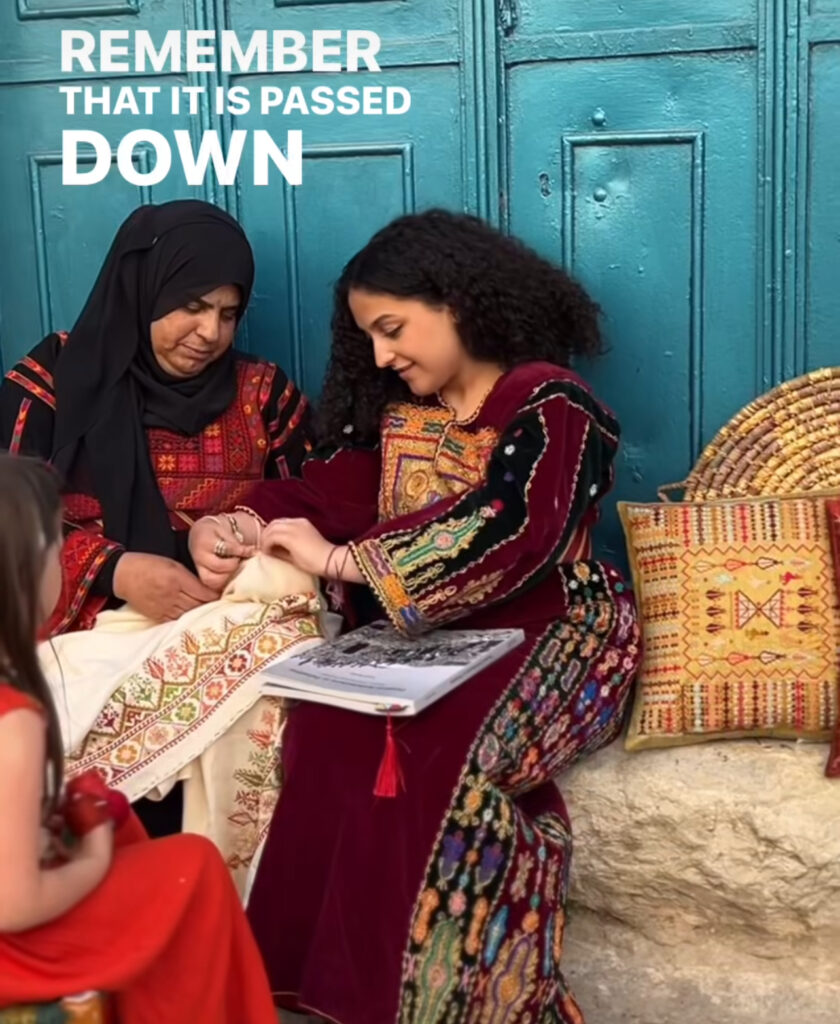
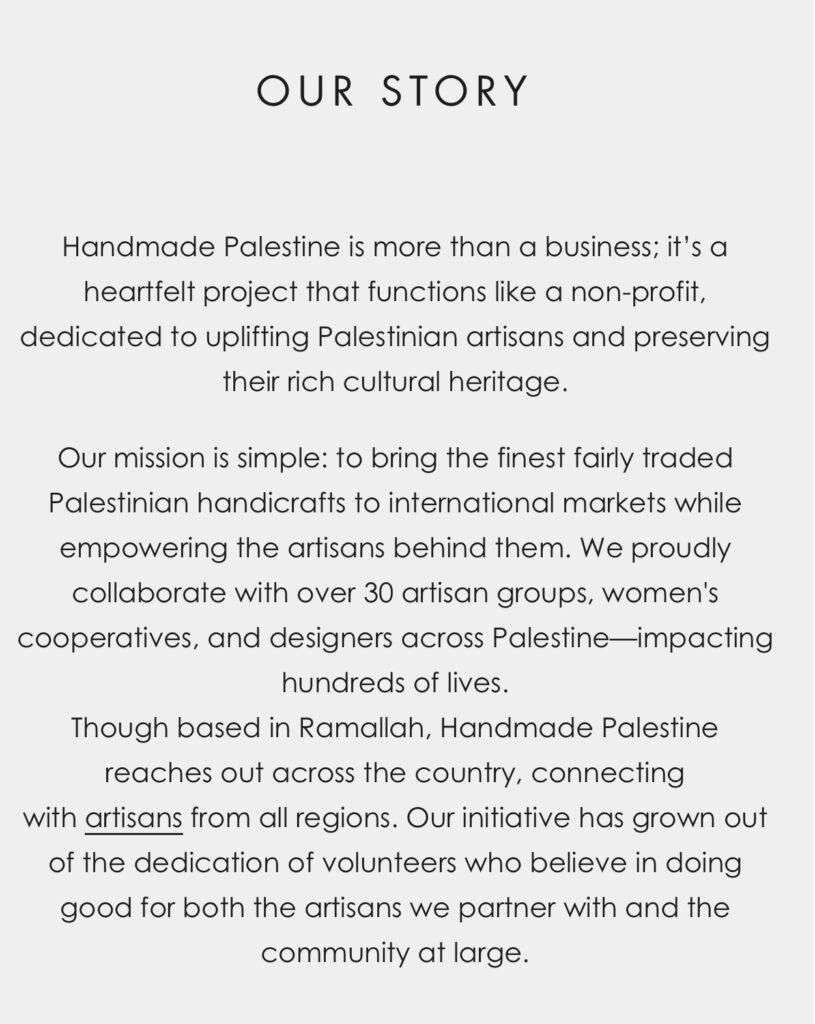
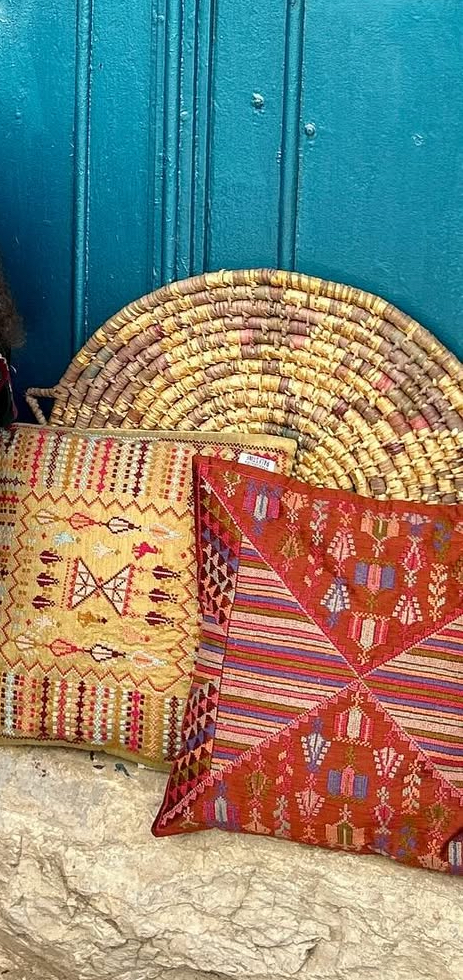
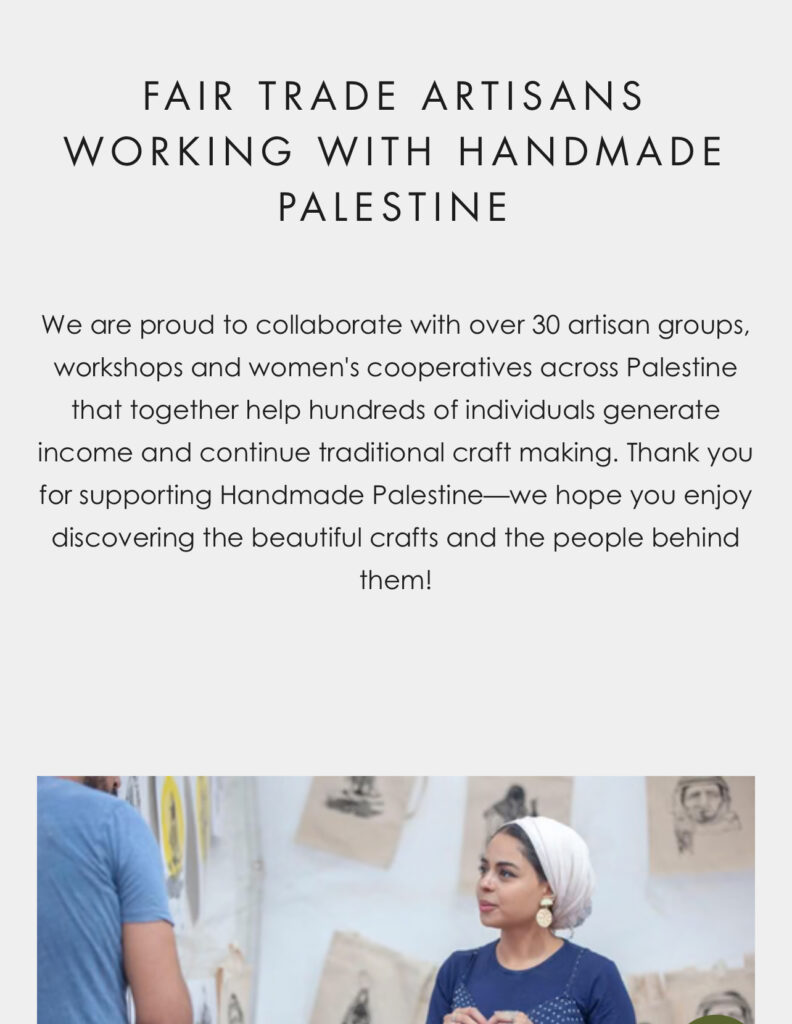
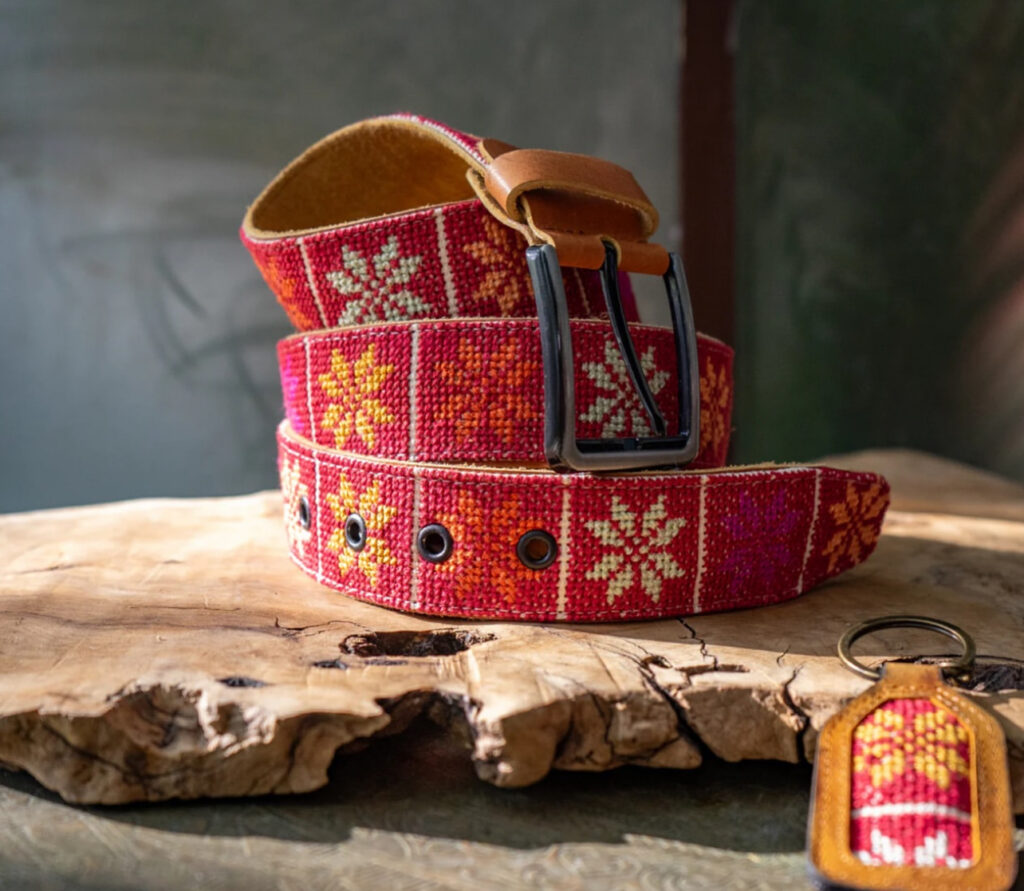
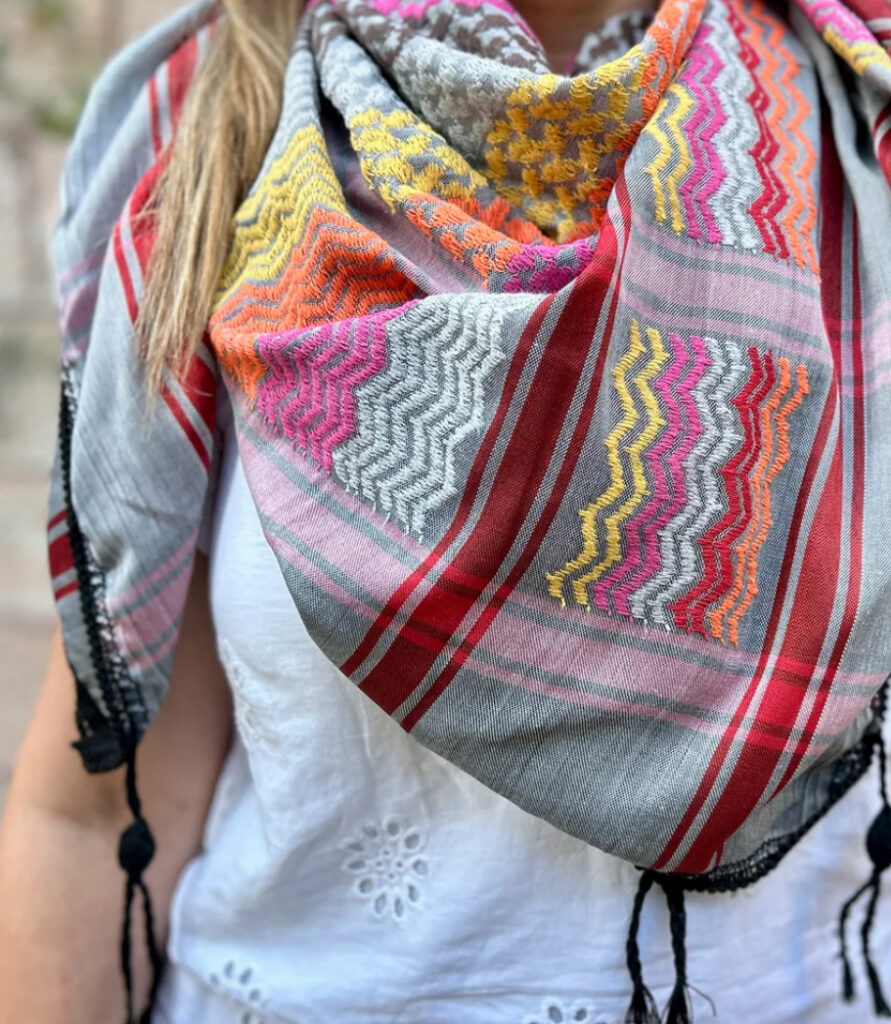
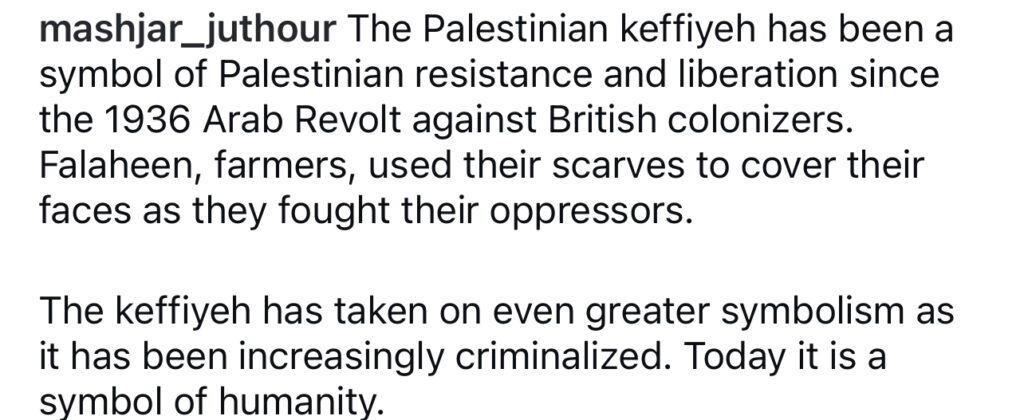
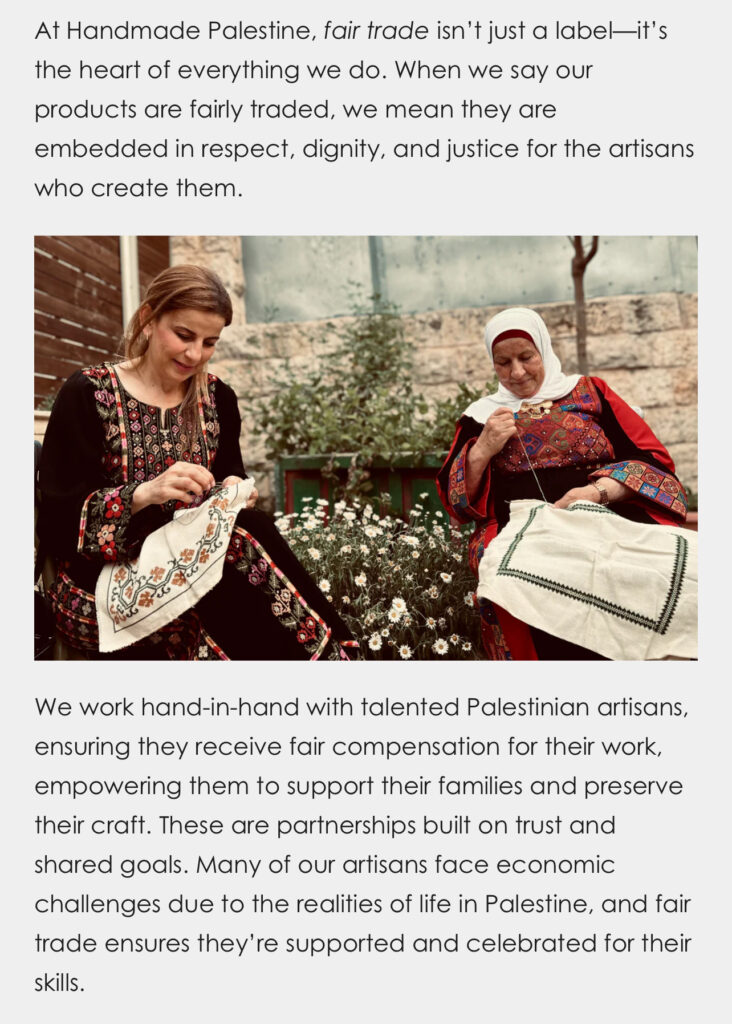
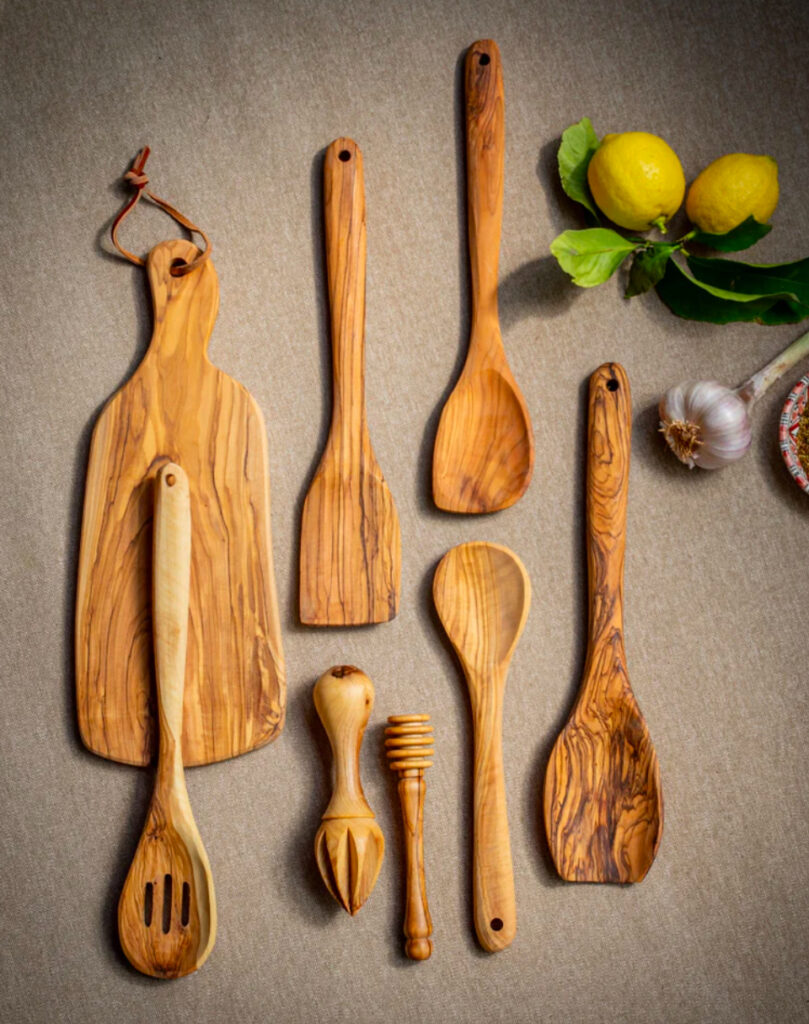
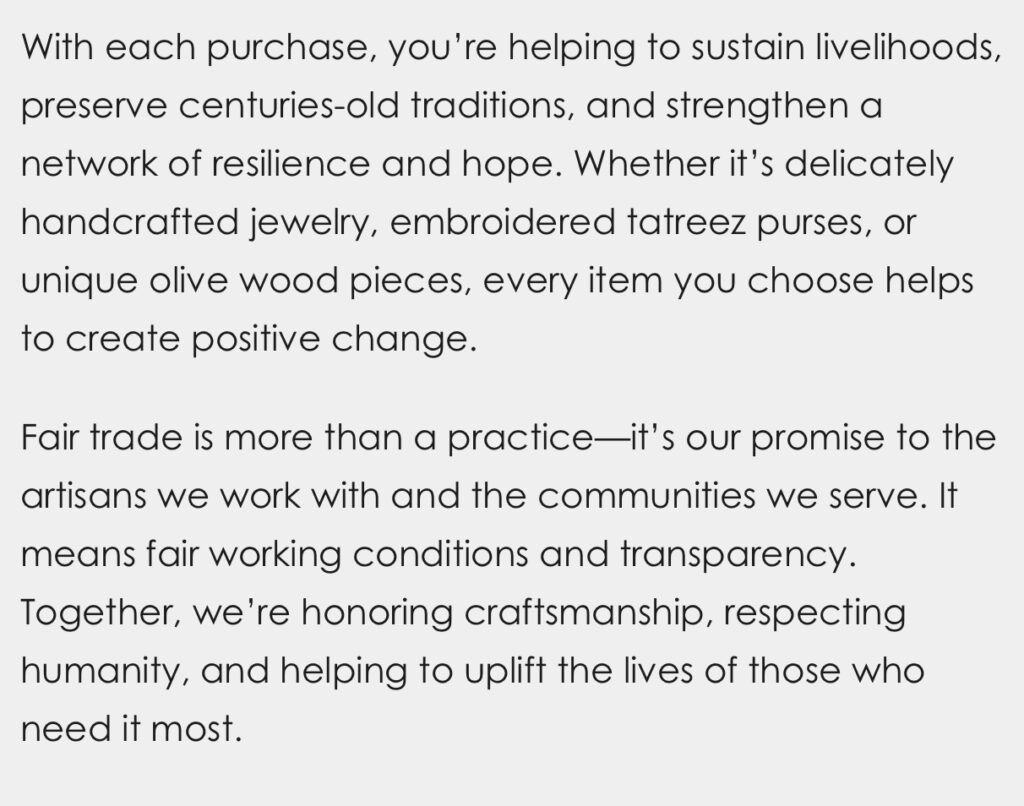
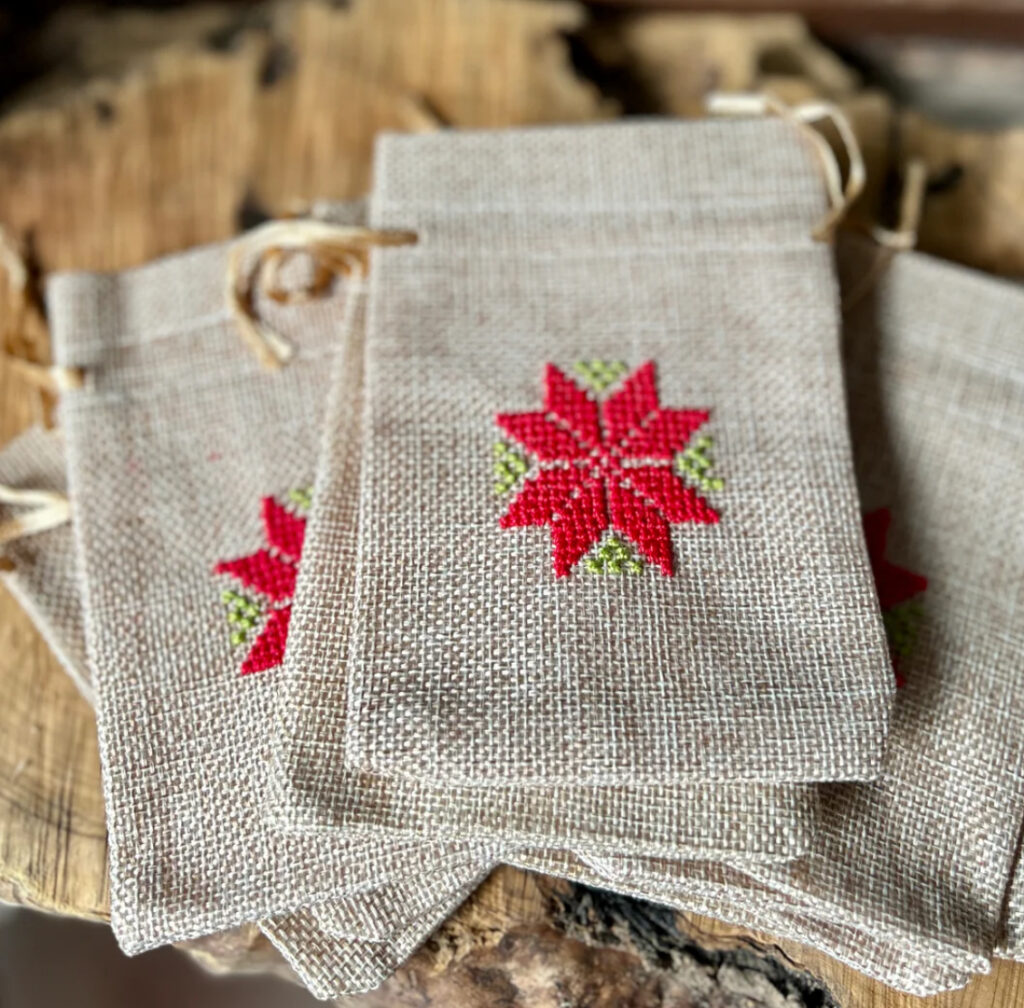
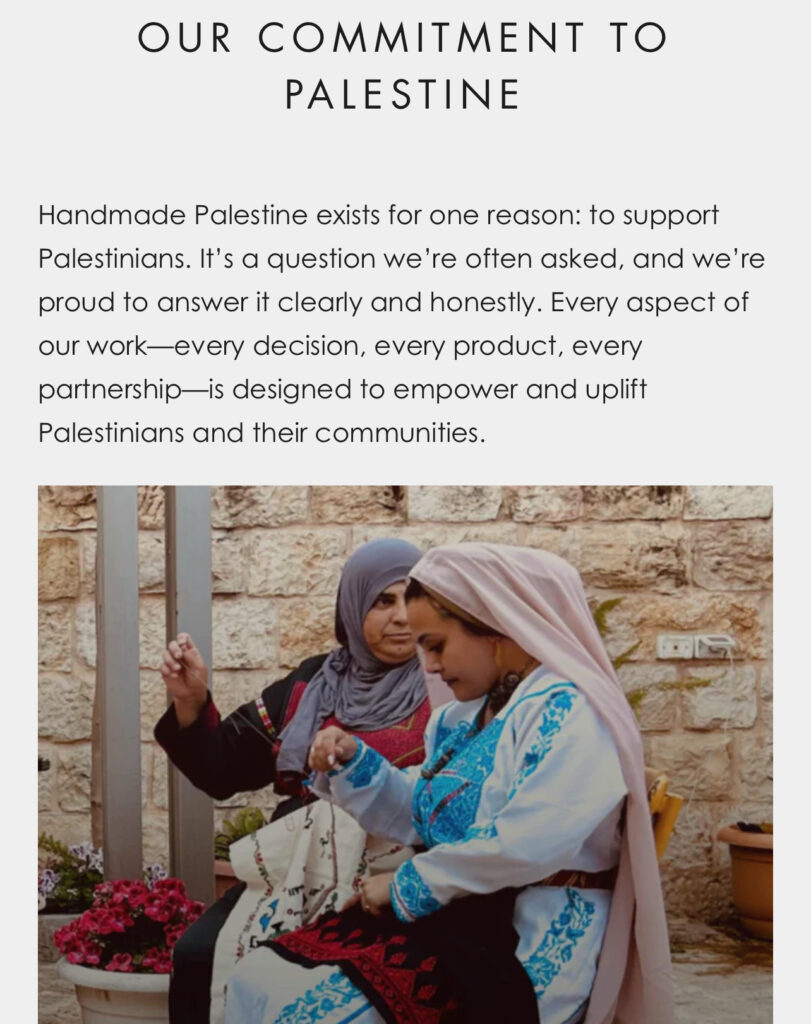
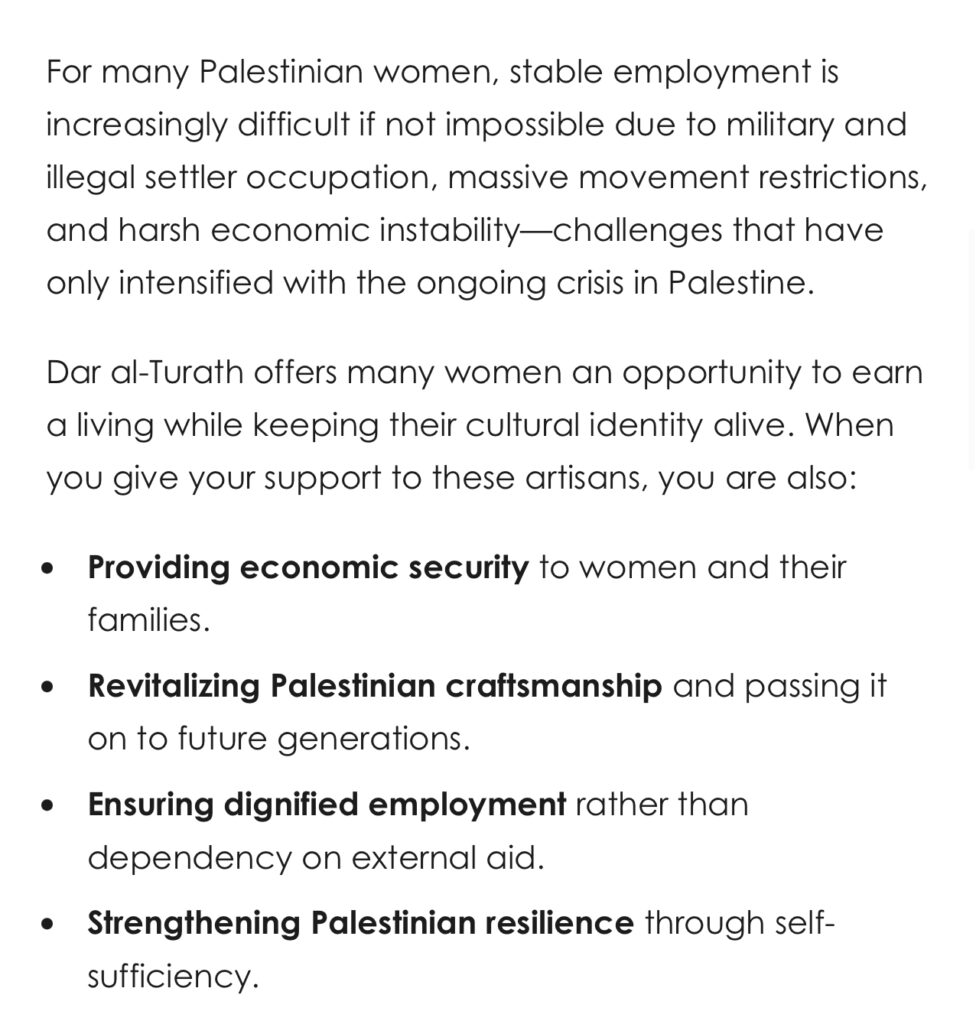
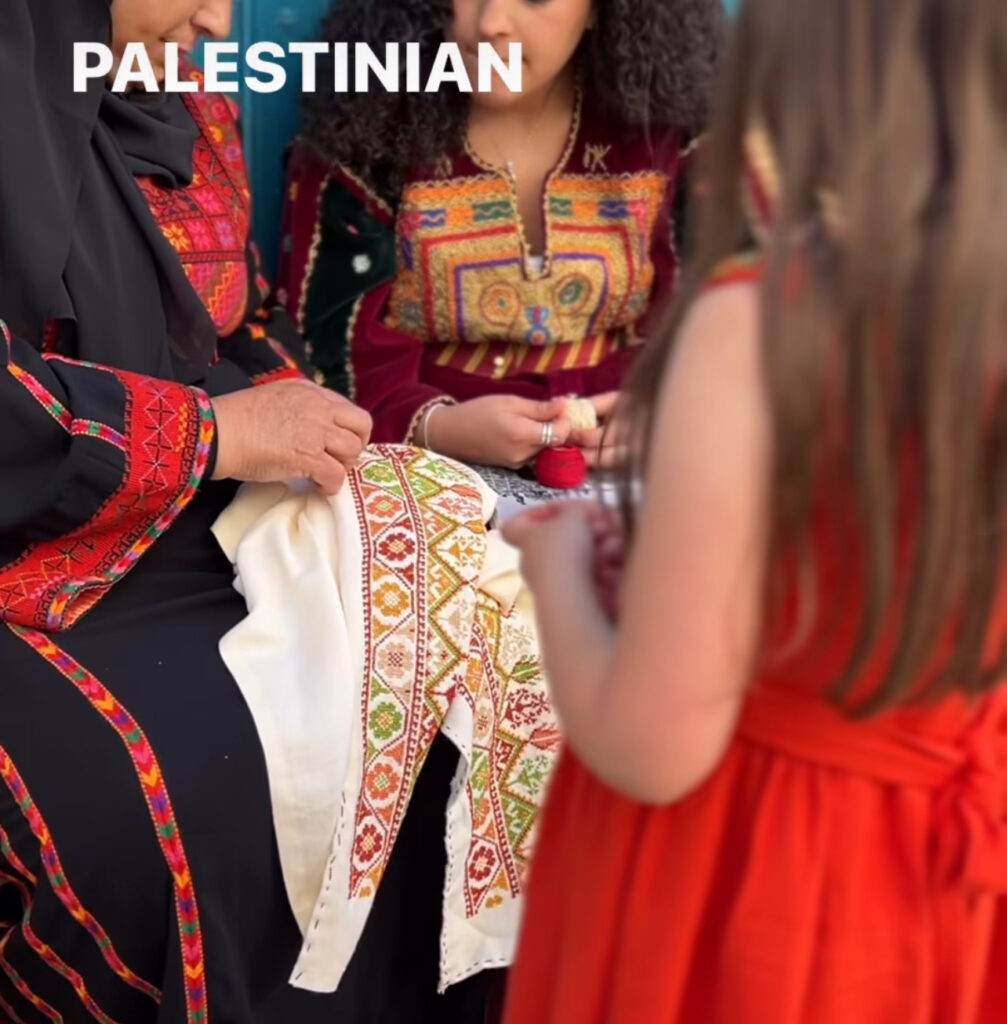
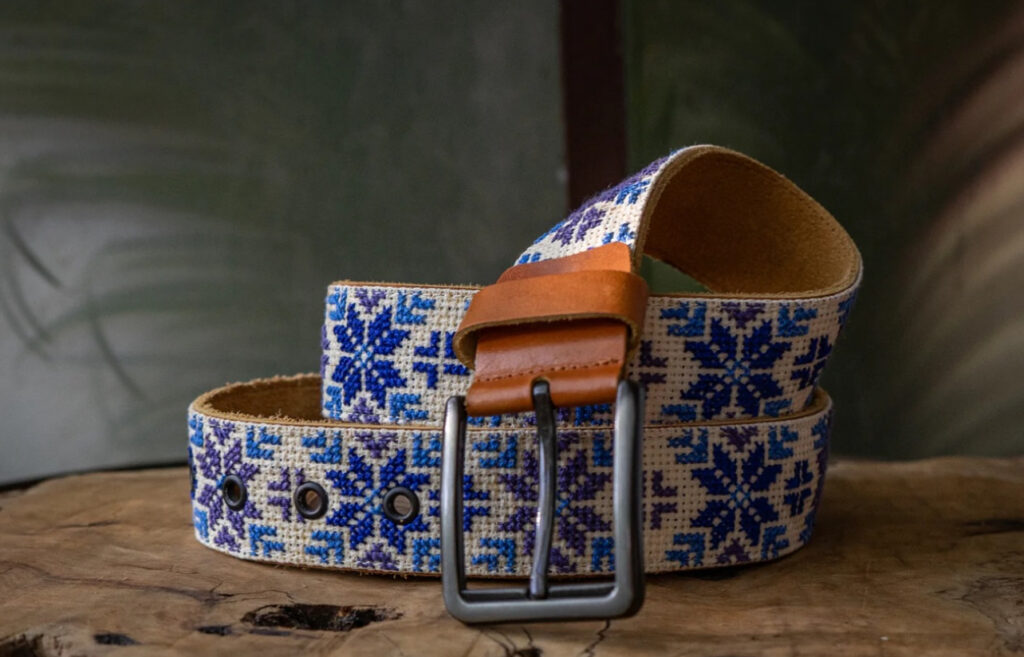
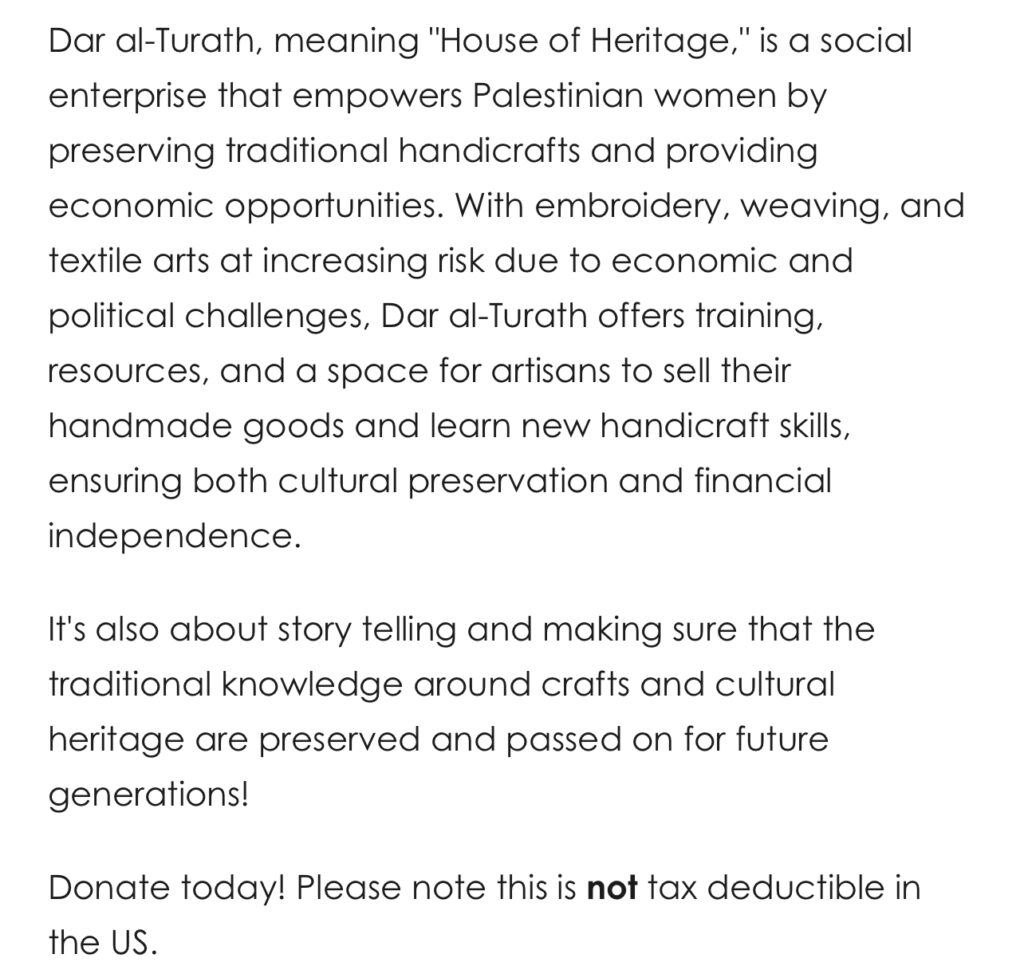
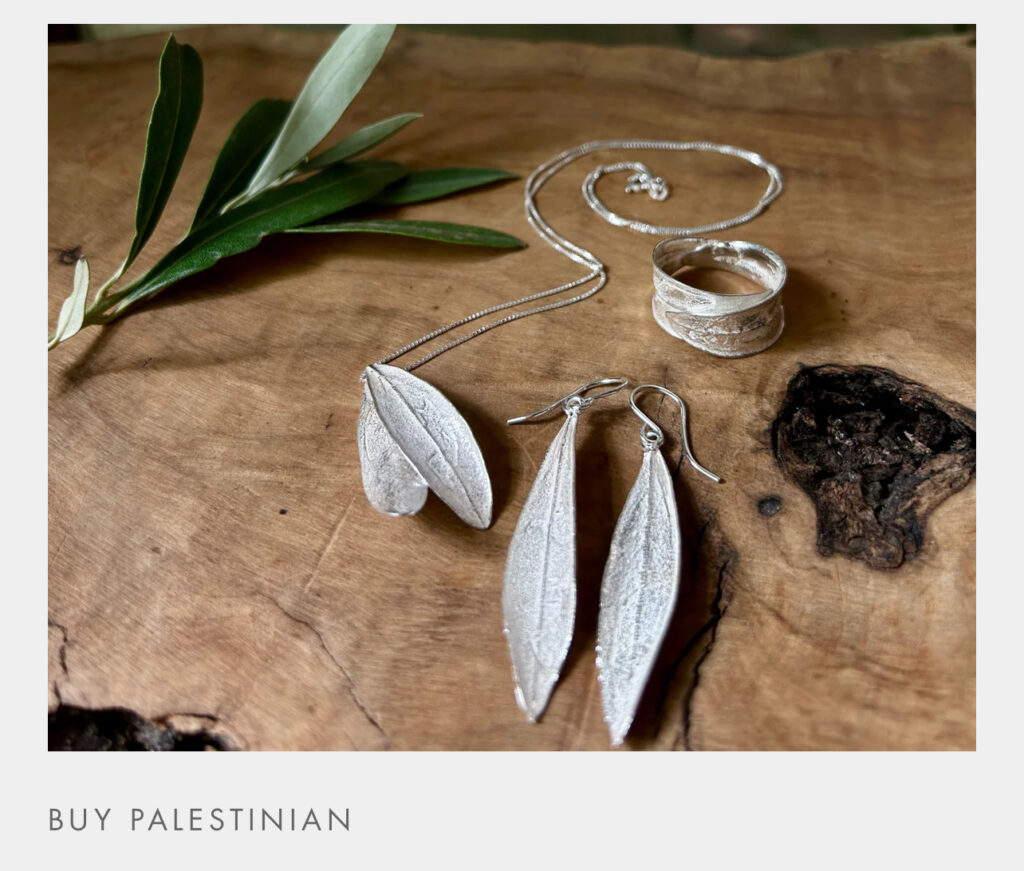
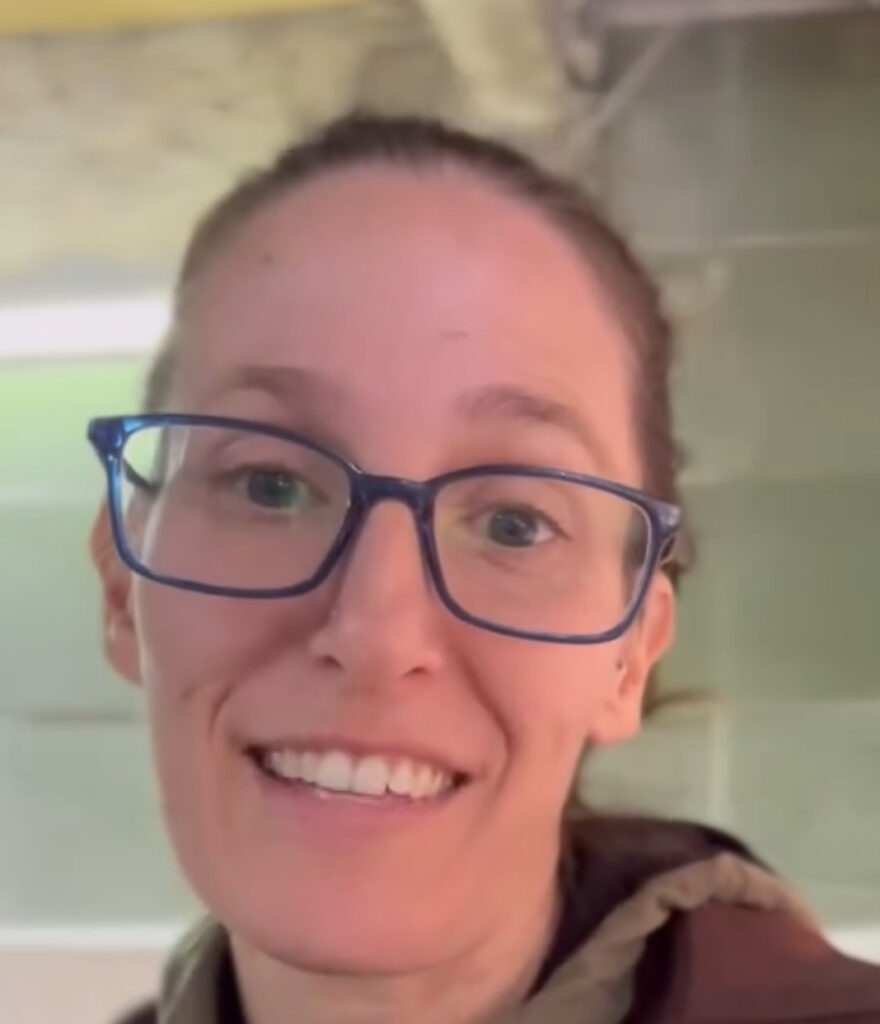
From California to Ramallah, she brought more than just a suitcase. She brought questions. Hope. Seeds—both literal and metaphorical.
Morgan doesn’t just live in Palestine; she listens to it. To its language, its rhythm, the silent cries buried beneath rubble, and the laughter that somehow still rises like birds at dawn.
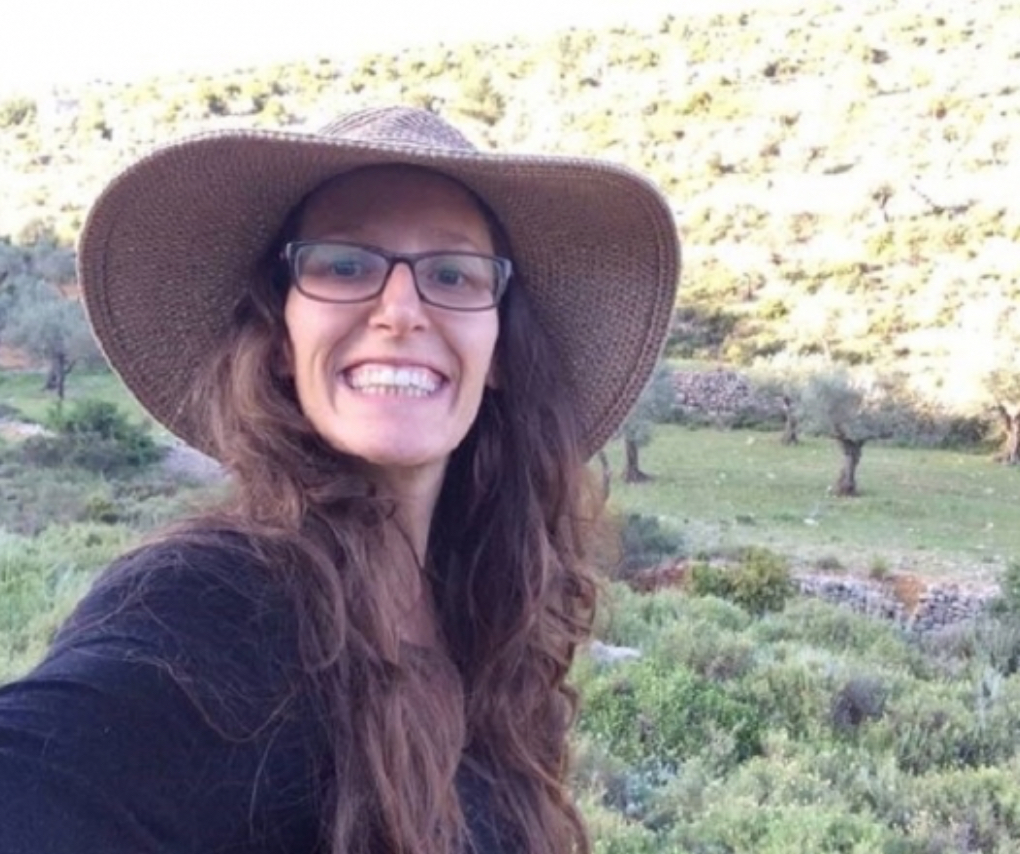
There is embroidery in her hands and rebellion in her softness. She’s the kind of woman who tucks her children in at night with one hand while the other lifts the weight of tradition, war, memory, and art.
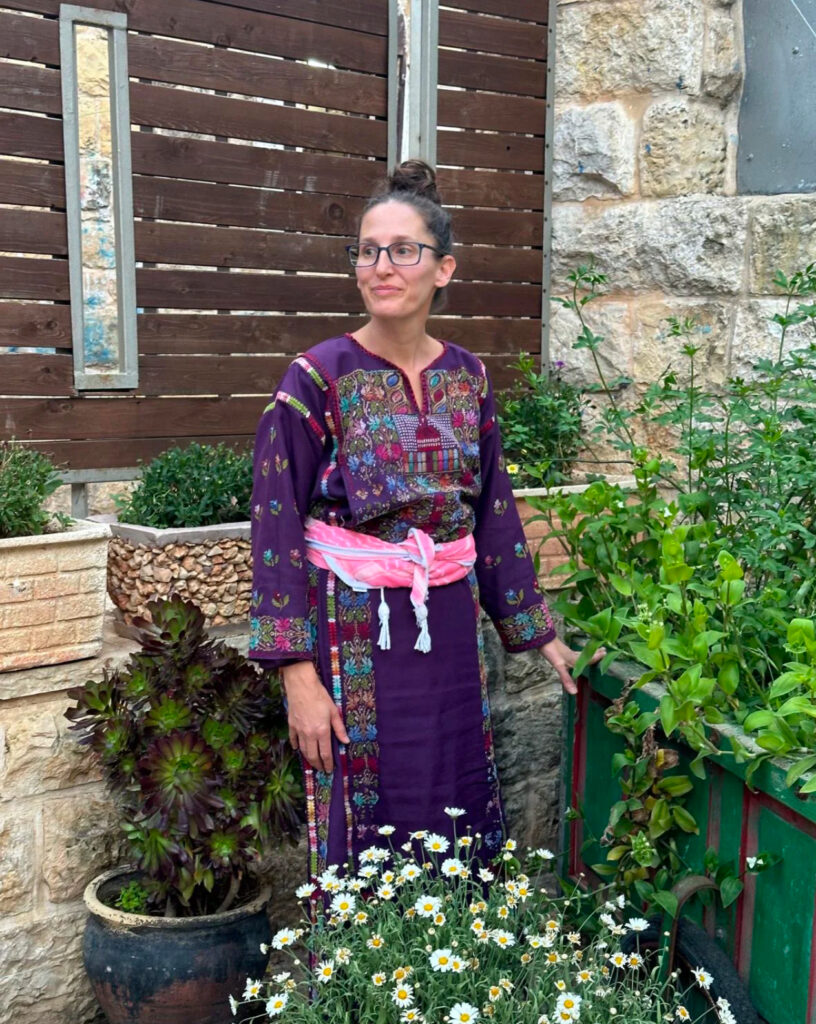
When the world said, “No one cares,” Morgan carved baby teethers from olive prunings and whispered, “I do.” From that whisper grew Handmade Palestine, a tapestry of voices—mostly women—whose fingers speak in thread and wood and soap and brass. She became a bridge, not out of charity, but out of deep conviction that beauty is resistance, and craft is a form of survival.
Morgan, with a toddler on her hip and another clinging to her scarf, talks to artisans, plants saplings, answers emails, and makes dinner—often all in the same hour. Her life is stitched together like tatreez: imperfect, intentional, full of symbols that only make sense when you lean in close.
She is a foreigner who stayed. Not to save, but to stand alongside.
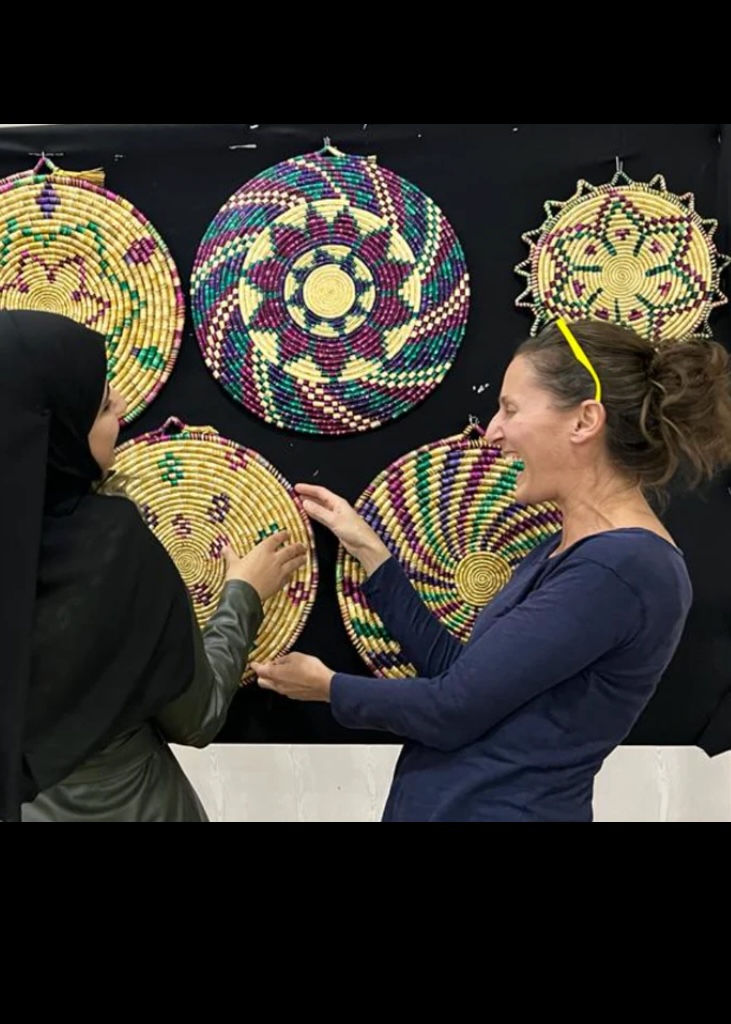
And perhaps that is what makes her rare.
Morgan in Ramallah—planted, pressing on, hopeful.
She loves like a mother. Fights like a farmer. And believes, quietly but unshakably, that healing can come from hands—busy hands, tired hands, hands that refuse to let go of the past or the future.
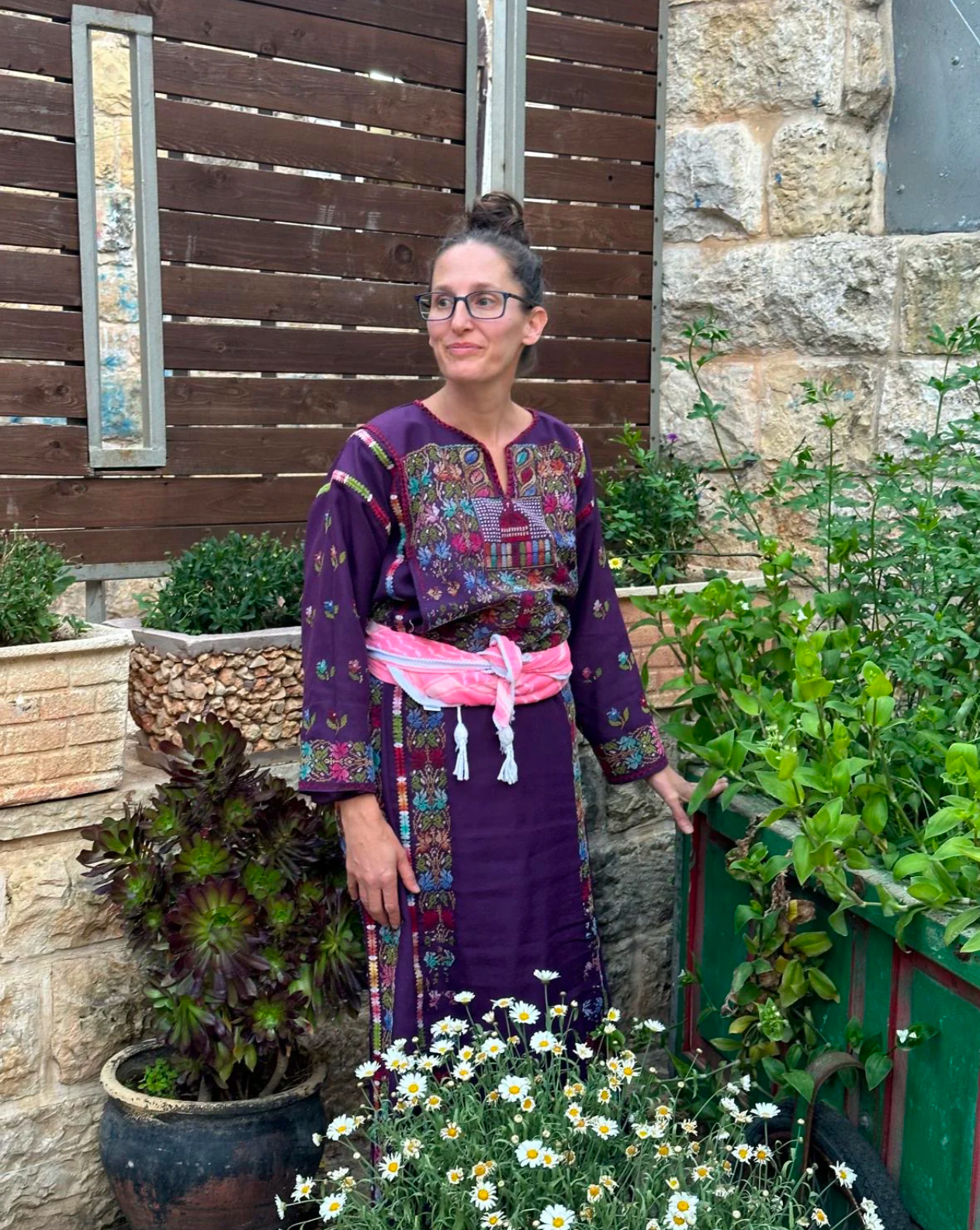

Leave a Reply to jeanne Cancel reply